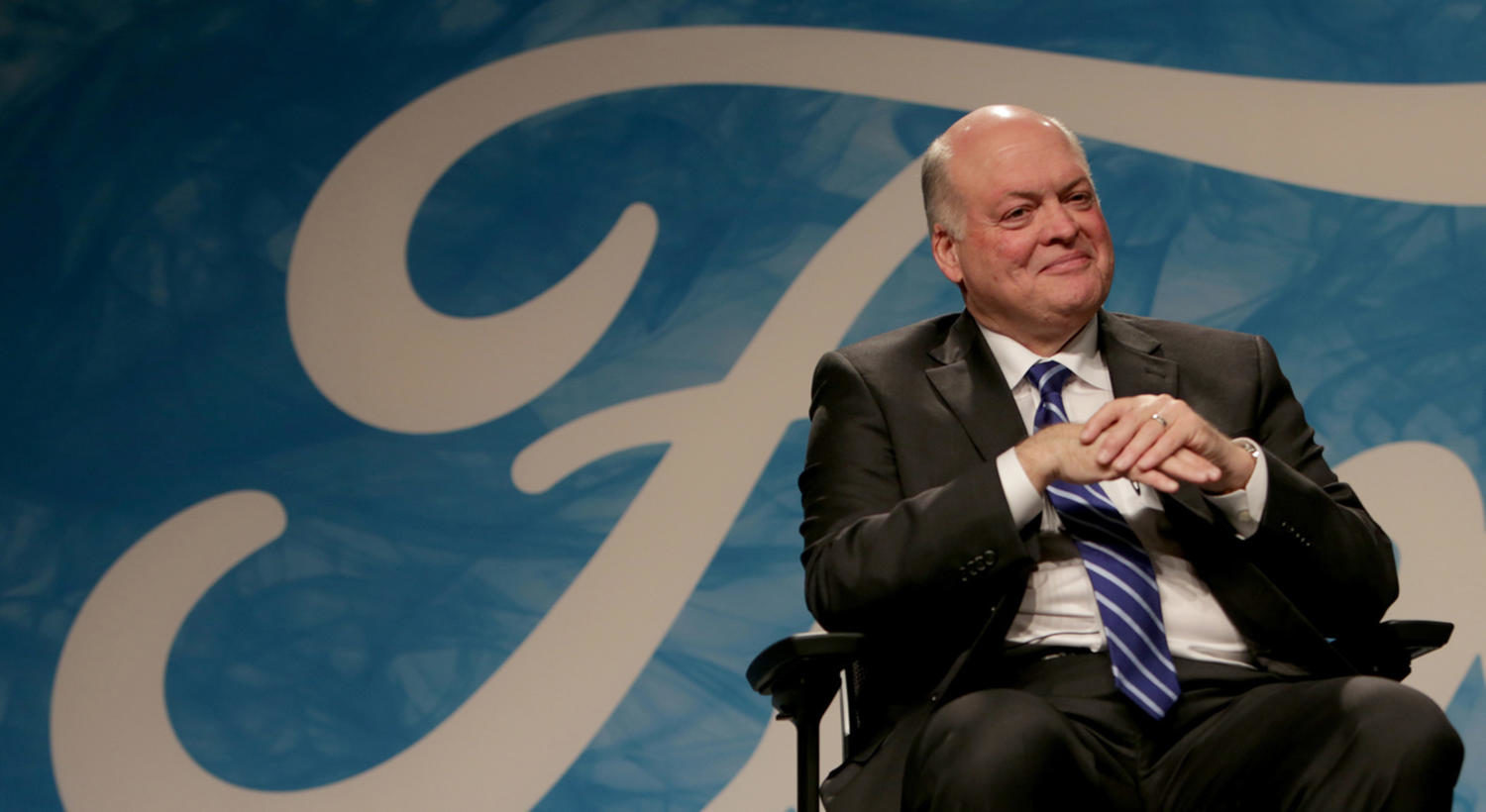Ford settles sexual, racial harassment claims at Chicago plants for $10 million
Ford Motor Company President and CEO, Jim Hackett, on Monday, May 22, 2017 at the Ford Motor Company World Headquarters in Dearborn, Mich. Ford said Wednesday it earned a profit of $2 billion during the second quarter. (Elaine Cromie/Detroit Free Press/TNS)
August 18, 2017
Ford Motor Co. has agreed to pay up to $10.1 million to settle racial and sexual harassment claims at two Chicago-area plants, a move that could allow it to avoid a class-action lawsuit being pursued in federal court.
The Equal Employment Opportunity Commission announced the settlement this week after an investigation gave it reasonable cause to believe that Ford personnel harassed female and black employees at its Chicago assembly and stamping plants, and retaliated against them when they complained. Such conduct violates the Civil Rights Act, the agency said.
Ford said in a statement that it “chose to voluntarily resolve this issue without any admission of liability with the EEOC to avoid an extended dispute,” and is committed to a “zero-tolerance, harassment-free work environment” at all its facilities.
Advertisement
“Ford conducted a thorough investigation and took appropriate action, including disciplinary action up to and including dismissal for individuals who violated the company’s anti-harassment policy,” the statement read.
But Chicago attorney Keith Hunt, who is representing more than 30 women in a harassment lawsuit against the carmaker, is incensed by what he calls a “backroom deal” to circumvent the class-action process.
“I don’t think it goes far enough, and I don’t think that it has provided any meaningful change in the plant environment and will do nothing to protect women,” Hunt said of the EEOC agreement.
His lawsuit, filed in 2014 in Chicago federal court, seeks to certify a class that would include all women who worked at the plants since 2012. The two plants have about 1,500 female employees currently, he said.
The EEOC agreement is separate from the lawsuit.
But Ford filed a motion Thursday in Hunt’s case asking the court to deny class certification because it and the EEOC had “entered into an agreement that will largely moot the relief plaintiffs seek in this case.”
The five-year EEOC agreement, a copy of which was filed with the motion, applies to the Chicago assembly plant at 12600 S. Torrence Ave. and the stamping plant at 1000 E. Lincoln Highway in Chicago Heights. About 5,500 people work across the two plants.
Advertisement*
The agreement establishes a settlement fund of $7.75 million that can be extended up to $10.125 million to cover awards and associated taxes. It doesn’t say how many people might receive a payout, but claims forms will be sent to current or former black and female employees who worked at the Chicago plants since January 2010.
In addition to the money, the agreement requires Ford to conduct regular anti-harassment training, establish an independent monitoring panel and provide quarterly reports to the EEOC identifying harassment complaints at the two plants.
Hunt said the agreement falls short and should offer “two or three times” the monetary settlement amount given the rampant harassment culture. The complaint he filed includes graphic allegations of unwanted physical advances.
His lawsuit seeks several remedies not in the agreement, including having an on-site monitor who reports to the court and a time frame for increasing representation of women in management, Hunt said.
In addition, Hunt said, the EEOC agreement doesn’t provide employees with counsel to help them prepare claims. He plans to ask the court to renegotiate the deal.
Ford spokeswoman Kelli Felker said the company believes the EEOC agreement “will provide a quicker, more efficient way for employees to receive compensation.”
In 2000, Ford agreed to pay $9 million to resolve two consolidated class-action lawsuits involving women at the assembly and stamping plants. The EEOC also brokered that deal, but a district judge later increased the award because she said the agreement “lacked bite.”
Hunt, who also represented the women in that case, said the new agreement is little different.
“We can’t simply dust off the 2000 agreement and add a little perfume and think it will change the environment,” he said.
The EEOC said in a statement from Chicago District Director Julianne Bowman that Ford worked with the agency to “implement policies and procedures that will effectively prevent future harassment or provide prompt action when harassment complaints arise.”
“Ford has taken its responsibilities seriously and is committed to providing its employees with a work environment free of discrimination and harassment,” Bowman said.
Barry Hartstein, an attorney at Littler Mendelson who represents management in employment cases and was not involved in the Ford case, commended Ford and the EEOC for “being proactive” about addressing the claims and not racking up more court costs.
“One of the key goals and objectives of this agency is to see if we can resolve matters without litigation,” he said.
The Chicago EEOC office has a reputation for being aggressive on harassment, Hartstein said. It was behind a landmark $34 million sexual harassment settlement agreed to by Mitsubishi Motors in 1998. Two of the largest recent cases, one for $11 million and another for $10 million, both alleging racial harassment against African-American employees at trucking companies, came out of the Chicago office, he said.
___
(c)2017 the Chicago Tribune
Visit the Chicago Tribune at www.chicagotribune.com
Distributed by Tribune Content Agency, LLC.
Advertisement








